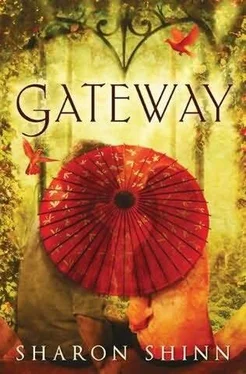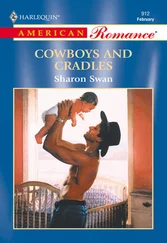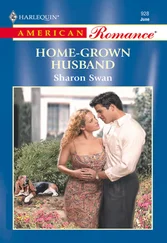Neither of them mentioned the assignation over dinner that night, at which the nine of them sat down to a meal so lavish it made Xiang’s ordinary feasts look like food that might be served at Kalen’s table. However, Daiyu did tell Xiang that night before they parted to go to their separate, luxurious bedrooms.
“This is very good,” Xiang said, her dark eyes bright with satisfaction. “He likes you. He did not ask Lanfen’s daughter to come to his office and look over his treasures. I will not boast, ofcourse,butyoumightfindaway toletitfallthat you have seen some of Chenglei’s most cherished artifacts. In a very guileless manner, of course.”
Daiyu hid a smile. “Of course, Aunt.”
Xiang then launched into yet another lecture about how to behave during the celebration. Daiyu barely listened; she had heard these particular instructions too many times to count. Plus, she was distracted by the low, cascading tones of the big river bells calling the stonepickers to come to work in the morning. Chenglei’s house was far enough from the waterfront that the bells were barely audible, and Daiyu was washed with an unreasonable sense of panic. As if she was too far away from Kalen-as if she would not hear him if he called her name. She clenched her hands tightly to her sides and strained to hear every last stroke of the bells until the final note faded into the night.
CHENGLEI’S OFFICE WAS a long, high-ceilinged room that over- looked the back lawns and ran half the width of the third story. It could be accessed from two hallways feeding from two different stairways, and each doorway was blocked by a heavy red-velvet curtain held back by a golden rope. The extended bank of windows took up one entire wall, but the other long wall was covered with art and artifacts. Chenglei started his presentation by taking Daiyu on a little tour.
“I love this cloisonné mask for its soft colors and intricate detail, but I do not believe it was ever worn, even in a ritual ceremony,” he said as they paused to admire one item. “It looks too small, don’t you think? Unless our ancestors from Yazhou were much tinier than we are today.”
“Perhaps it was a child’s mask?” Daiyu suggested.
“That is what some scholars have considered. But it seems very heavy for a child, don’t you think?”
“What was the purpose?”
“Ah! No one knows. Unfortunately, that is the case for many of these items.”
They moved on to study a dragon about the size of Daiyu’s forearm, carved of apple-green jade and accented with gold on its eyes, its tongue, its talons, and its tail. “Can you believe it? That item is more than a thousand years old,” Chenglei marveled. “What artisan took up his tools to liberate this creature from insensate stone? Who was he? A craftsman who produced masterpieces for emperors? A student who practiced his skills late into the night? Was he arrogant enough to believe that his work would last for centuries or humble enough to hope that he could sell his figurine to buy another meal for his wife and starvingdaughter?”
His words filled Daiyu’s head with images of Han artists industriously bent over workbenches, their eyes intent, their expressions enraptured. “Will anything you or I create last long enough to make people wonder about us ten centuries from now?” she asked in turn.
He turned to her, delighted. “Precisely! What mark will we makeonourworld?Whatgoodwillwedo,whattreasureswill we produce, to make people remember us long after we have moved on?”
“I have never had such an ambition,” she admitted.
“Well, I have,” Chenglei said. “And a girl like you has as much right to change the world as a man like me.”
She was filled with a sudden excitement-he was right! Anyone could make an impact on the world-followed by the swift realization that such sentiments were not quite as popular in Shenglang as they might be back in her own iteration. She cast her eyes down. “My aunt does not encourage such thinking,” she said in a low voice.
“Well, your aunt might not know as much as I do,” Chenglang said, sounding amused. “I have had experiences that Xiang could never hope to match.”
Before Daiyu could answer that, a servant was stepping through one of the red-curtained doors and bowing low. “Prime Minister,” he said, “Chow has arrived to speak to you on a mattter he calls very urgent.”
Chenglei sighed. “And if it is the matter I asked him to investigate for me, it is very urgent indeed.” He turned to Daiyu. “Most honored guest, I am afraid that-”
Daiyu was already backing away toward the curtained door through which they had entered. “I will not take any more of your time! Thank you for sharing your treasures-and your thoughts-with me. I feel immeasurably enriched.”
“It is I who am the richer,” Chenglei said.
She was halfway out the door when she heard Chenglei speak to his servant. “I need ten minutes to read a report. Bring Chow to me after that.”
“Yes, Prime Minister.”
Head bent in thought, Daiyu descended the great curved staircase that led two stories down to the main foyer where they had all congregated on the night of the Presentation Ball. She was almost on the ground level when she realized that two people were coming in the front door.
“Niece, see who I found arriving at the prime minister’s house to call on you!” Xiang exclaimed, drawing Quan through the door with the air of someone about to present an expensive gift. “He is so impatient to see you that he cannot even wait till nightfall!”
“That is only partly true,” Quan said with a grin. He was comfortable enough with Daiyu now to add a little humor to the ritualized conversations. “I also thought I could make myself valuable by offering to take you on any last-minute errands you might need to run. I know that women always require some final accessory to make their outfits complete.”
“Oh, Daiyu is always forgetting something,” Xiang said with a wave of her hand. “I am sure she will be grateful to you for your thoughtfulness.”
“Most grateful,” Daiyu agreed. “Aunt, may I go with him now?”
“You must first tell your host that you are leaving,” Xiang said in a scolding voice. “How rude! To simply leave a man’s house without a word of explanation!”
“Yes, Aunt. I’m sorry, Aunt. I will seek out the prime minister right now.”
“I will wait here,” Quan said.
Xiang headed straight toward the rear of the house, no doubt looking for one of the other guests to brag to about Quan’s courtship of her niece. Daiyu flew back up the stairs, hoping to arrive in Chenglei’s office before Chow was ushered in. Surely it had not yet been ten minutes?
She was almost at the red velvet door when she heard voices through the curtain, and she stopped, disappointed. Could she leave the house without Chenglei’s permission? She crept close enough to hear, wondering if this was a conversation she could interrupt.
“And you have located the traitor Feng?” Chenglei was asking.
“We believe we have, Prime Minister,” a man replied. His voice was soft and subservient; the word “unctuous” came to Daiyu’s mind, though she had never used it in her life. “He has been living with a family in the cangbai district of Shenglang.”
“And? I hope you have apprehended him, Chow.”
“Not yet. He slipped away when we tried to corner him this morning. We followed him, but he mingled with the workers stepping into the river to gather qiji stones.”
Chenglei uttered a sound of deep frustration. “And that is where he stillis? Grubbing about in the mud, hiding among the stonepickers?”
“We believe so. We have men roving up and down both sides of the river, ready to catch him if he tries to leave.”
Читать дальше












